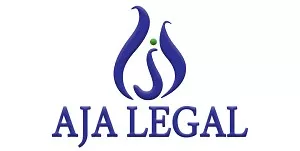The Division Bench of the Hon'ble Bombay High Court ("Bombay High Court" / "Court") in Kamal K Singh v. Union of India and Ors. (WP(L) 3250 of 2019) ("Rolta"), vide judgment dated November 29, 2019, decided on the following issues: -
- Whether the writ petition was maintainable before Bombay High Court? and
- Whether the National Company Law Tribunal, Mumbai Bench ("Adjudicating Authority, Mumbai Bench") order dated October 22, 2019 deserved to be quashed?
Ruling of the Bombay High Court: Issue of incurable procedural irregularity
The Bombay High Court issued the writ of certiorari for quashing and setting aside the impugned admission order of Adjudicating Authority, Mumbai Bench dated October 22, 2019 ("Admission order") on the ground that the same was not pronounced in accordance with Rules 150 to 152 of National Company Law Tribunal Rules, 2016 ("NCLT Rules"). The Court observed that where arguments have been concluded and the judgment is ready for pronouncement, the same has to be done after notifying to the parties in advance the date of such pronouncement.
If there is a requirement of pronouncement of judgment and the same has not been adhered to, then the judgment would have to be declared as nullity by a writ of the High Court. The Bombay High Court, relying on its earlier Division Bench judgment in Anthony Raphael Kallarakkal1 (decided on September 7, 2018), reiterated that when exceptional facts and circumstances have been made out, the High Court can exercise jurisdiction under Article 226 despite availability of alternate remedy.
The Bombay High Court further observed that if the orders of a court or tribunal subordinate to the High Court had resulted in a failure of justice, then writ of certiorari can be issued irrespective of the availability of alternate and equally efficacious remedies to the petitioner. As the Court came to the conclusion that the defect in Admission order was not curable in nature and had vitiated the proceedings in their entirety, it directed the Adjudicating Authority, Mumbai Bench to hear the application filed under Section 7 of the Insolvency and Bankruptcy Code, 2016 ("Section 7 application") afresh on merits and in accordance with law.
Brief facts in Rolta:
- The Petitioner, being the Chairman and Managing Director of Rolta India Ltd. ("Corporate Debtor"), had filed a writ petition under Article 226 of the Constitution before Bombay High Court, challenging the admission order of the Adjudicating Authority, Mumbai Bench dated October 22, 2019 in the Section 7 application against the Corporate Debtor.
- The Section 7 application was reserved for orders by the Adjudicating Authority, Mumbai Bench on August 20, 2019. Subsequently, the Resolution Professional (Respondent No. 5 in the writ petition) took possession of the registered office of Corporate Debtor on November 8, 2019, on the basis of Admission order dated October 22, 2019. However, the Section 7 application was never listed for pronouncement of orders till one of the members of the Adjudicating Authority, Mumbai Bench demitted office on October 22, 2019. Hence, the Admission order was not pronounced on October 22, 2019 and was thereafter, uploaded on the website of Adjudicating Authority only on November 13, 2019 which was the first occasion on which the Petitioner came to know about such order.
- In view of the aforesaid facts, the Petitioner averred in the writ petition that the Admission order dated October 22, 2019 was bad in law and without jurisdiction, for being in violation of the principles of natural justice as well as Rules 1502 and 152(2)3 of the NCLT Rules, 2016.
Exercise of power under Section 614 of Insolvency and Bankruptcy Code, 2016 ("IBC") by National Company Law Appellate Tribunal ("NCLAT"): Can NCLAT adjudicate upon and rectify issues pertaining to procedural irregularity?
NCLAT order in the matter of Vistra ITCL(India) Ltd.5 ("Vistra ")
The Full bench of Hon'ble NCLAT, vide order dated October 25, 2019, set aside the impugned admission order dated August 27, 2019 passed by NCLT-III, New Delhi (Adjudicating Authority, Delhi Bench-III) in Vistra and remitted the Section 7 application (filed by Vistra ITCL(India) Ltd. back to Adjudicating Authority, Delhi Bench-III for fresh hearing on merits by Division Bench, in view of the facts and circumstances of the case and the legal position enshrined under Rule 152(4) of NCLT Rules.
Brief facts in Vistra
In Vistra, the admission order dated August 27, 2019 passed by Adjudicating Authority, Delhi Bench-III, in the Section 7 application filed against Ambience Private Ltd. ("Corporate Debtor"), was challenged before the NCLAT on the ground that the Section 7 application having been heard entirely by a Division Bench, the final order of admission could not have been passed only by the Judicial Member. The Technical Member of the concerned bench had retired after the matter was reserved for orders but before the pronouncement thereof.
Our observations
It is evident from the NCLAT Ruling in Vistra that NCLAT, as the appellate authority under Section 61 of IBC, has the jurisdiction to entertain, adjudicate on and dispose of appeals arising out of procedural irregularities by Adjudicating Authorities (under Part II of IBC) resulting in violation of NCLT Rules and/or failure of justice to party(s). Further, Section 61(1) of IBC states that "Notwithstanding anything to the contrary contained under the Companies Act 2013 (18 of 2013), any person aggrieved by the order of the Adjudicating Authority under this part may prefer an appeal to the National Company Law Appellate Tribunal.".
A conjoint reading of Section 61(1) of IBC with the NCLAT order in Vistra makes it unmistakeably clear that a party aggrieved due to procedural irregularities by and/or before NCLTs can approach NCLAT by way of an appeal under Section 61 of IBC.
Rolta to open floodgates of litigation before High Courts?
The Bombay High Court's decision to exercise its supervisory capacity under Article 227 of the Constitution in Rolta and intervene in IBC proceedings initiated against the Corporate Debtor on the ground of exceptional facts and circumstances leading to failure of justice, especially when NCLAT has the jurisdiction in its appellate capacity under IBC to entertain such cases, is likely to open floodgates of frivolous litigation before High Courts across the country. The disgruntled parties, such as errant promoters and unsuccessful resolution applicants, will misuse this additional avenue to scuttle the time-bound insolvency resolution provided under IBC, while also rendering the legal remedy of appeal before the NCLAT/DRAT redundant. While the supervisory authority of High Courts is undisputed, it remains to be seen whether the High Courts would exercise their self-imposed restraint in IBC matters especially when alternative and efficacious remedies are available to the aggrieved parties before NCLAT/DRAT.
Footnotes
1. Anthony Raphael Kallarakkal v. National Company Law Tribunal, Mumbai Bench & Ors., 2018 SCC OnLine Bom 13865
2. Rule 150 – Pronouncement of order, National Company Law Tribunal Rules, 2016
3. Rule 152 – Authorising any member to produce order, National Company Law Tribunal Rules, 2016
4. Section 61 – Appeals and Appellate Authority, Insolvency and Bankruptcy Code, 2016 (Act No. 31 of 2016)
5. Raj Singh Gehlot, Director of Ambience Pvt. Ltd. v. Vistra ITCL(India) Ltd. & Anr. (Company Appeal (AT) (Insolvency) No.971 of 2019)
The content of this article is intended to provide a general guide to the subject matter. Specialist advice should be sought about your specific circumstances.


